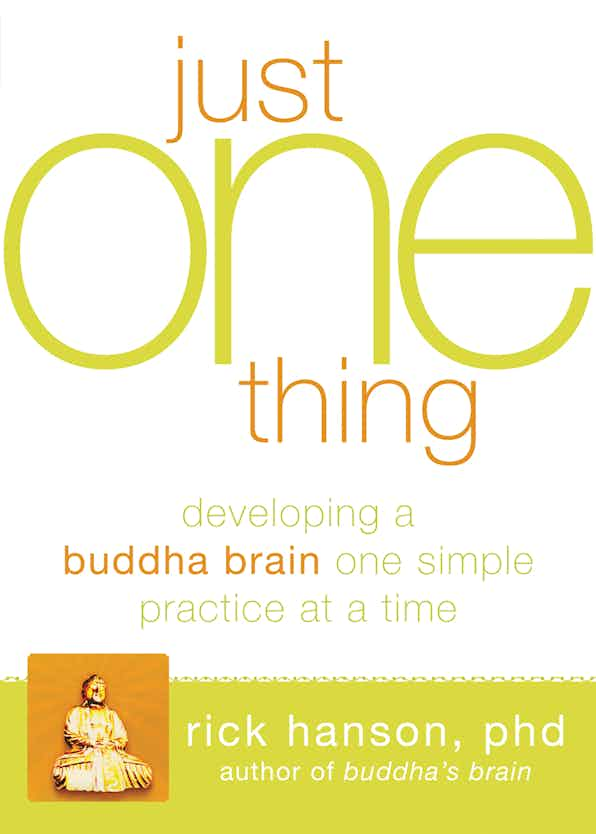TOPIC
Neuroplasticity
Neuroplasticity, a concept only discovered within the past twenty years or so, refers to the ability of the brain’s neural pathways to grow, change, and reorganize. This plasticity can be impacted by external (physical or chemical) changes to the structure of the brain, but it can also be changed by internal, activity-dependent behaviors. This means that we can work to intentionally enhance or alter our brain function by changing our behaviors and thought patterns. Meditation is one particularly well-studied practice for brain change.
FILTER
CLEAR ALL
BY TEACHER
BY TYPE
FILTER

TOPIC
- Mindfulness Meditation (16)
- Emotional and Mental Health (15)
- Well-Being (15)
- Growth Mindset (14)
- Meditation (14)
- Awareness (11)
- Happiness (11)
- Stress Management (11)
- Mindfulness Practices (11)
- Compassion (10)
- Athlete Well-Being (9)
- Self-Limiting Beliefs (8)
- Science and Spirituality (8)
- Neuropsychology (8)
- Empathy (6)
- Epigenetics (6)
- Aging (6)
- Focus (6)
- Personal Development (6)
- Inner Strengths (6)
- Anxiety (6)
- Trauma Healing (5)
- Life Challenges (5)
- Young Adult Well-Being (4)
- The Yips (4)
- Positive Thinking (4)
- Generosity (4)
- Positive Psychology (4)
- Entrepreneurship (4)
- Habits of Mind (4)
- Academic Struggles (4)
- Gender Identity (4)
- Stress (4)
- Somatic Practices (4)
- Self-Healing (4)
- Negative Self-Talk (4)
- Memory (4)
- Lovingkindness Meditation (4)
- Human Potential (4)
- Gratitude (4)
- Inner Peace (4)
- Chronic Pain (4)
- Buddhism (4)
- Physical Health (3)
- Belonging (3)
- Affirmations (3)
- Emotional Intelligence (EQ) (3)
- Self-Compassion (3)
- Self-Love (3)
- Confidence (3)
- Honoring Emotion (3)
- Kindness (3)
- Habit Formation (3)
- Trauma (3)
- Sleep (3)
- Self-Reflection Practices (3)
- Search for Purpose (3)
- Parenting (3)
- Diet and Nutrition (3)
- Communication Skills (3)
- Anat Baniel Method (3)
- Raising Nonbinary Children (2)
- Learning Styles (2)
- Vulnerability (2)
- Embodiment (2)
- Genetics (2)
- Conflict Resolution (2)
- Relationship with Time (2)
- Biohacking (2)
- Presence (2)
- Acceptance (2)
- Child’s Emotional Growth (2)
- Community Healing (2)
- Lovingkindness (2)
- Addiction Recovery (2)
- Building Character (2)
- Child’s Trauma (2)
- Suffering (2)
- Gender Challenges (2)
- Self-Development (2)
- Yoga (2)
- Transformation (2)
- Social Psychology (2)
- Positive Self-Talk (2)
- PTSD (2)
- Mental Health Challenges (2)
- Longevity (2)
- Joy (2)
- Healing Approaches (2)
- Exercise (2)
- Visualization (2)
- Consciousness (2)
- Cognition (2)
- Chronic Health Conditions (2)
- Cancer (2)
- Breathwork (2)
- Anger (2)
- Addiction (2)
- Disabled Well-Being (1)
- Creative Well-Being (1)
- Managing Energy (1)
- Intention (1)
- Inner Life (1)
- Spiritual Growth (1)
- Identity (1)
- Self-Control (1)
- Willpower (1)
- Motherhood (1)
- Perception (1)
- Adaptability (1)
- Interdependence (1)
- Wholeness (1)
- Values (1)
- Play (1)
- Authenticity (1)
- Intergenerational Trauma (1)
- Criticism and Rejection (1)
- Somatic Experiencing (1)
- Endurance (1)
- Spiritual Awakening (1)
- Sexuality (1)
- Grit (1)
- Work Relationships (1)
- Trust (1)
- Intimacy (1)
- Shame (1)
- ADD/ADHD (1)
- Failure (1)
- Climate Change (1)
- Trauma-Informed Therapy (1)
- Tibetan Buddhism (1)
- The Unconscious (1)
- Self-Realization (1)
- Self-Mastery (1)
- Self-Esteem (1)
- Self-Actualization (1)
- Self-Care (1)
- Relationship Challenges (1)
- Quantum Physics (1)
- Social Presence (1)
- OCD (1)
- Finding Meaning (1)
- Love (1)
- Letting Go (1)
- Illness and Injury (1)
- Imagination and Creativity (1)
- Guided Meditation (1)
- Guided Imagery (1)
- Gender Discrimination (1)
- Forgiveness (1)
- The Feldenkrais Method (1)
- Fear (1)
- EMDR (1)
- Enlightenment (1)
- Dysfunctional Childhood (1)
- Drug Addiction (1)
- Dreamwork (1)
- Dementia (1)
- Depression (1)
- Courage (1)
- Compassion Meditation (1)
- Cognitive Behavioral Therapy (1)
- Biofeedback (1)
- Archetypes (1)
- Anger Management (1)
- Altered States (1)
FILTER

TEACHER
- David Eagleman (3)
- Forrest Hanson (3)
- Linda Graham (3)
- Shauna Shapiro (3)
- Yongey Mingyur Rinpoche (2)
- Poppy Jamie (2)
- Erin Clabough (2)
- Elena Brower (2)
- Dave Asprey (2)
- Annie Hopper (2)
- Carol Dweck (2)
- The Dalai Lama (2)
- Brené Brown (2)
- Daniel Amen (2)
- Swami Mukundananda (1)
- Diane Ackerman (1)
- Oliver Sacks (1)
- Anat Baniel (1)
- Francine Shapiro (1)
- Krista Tippett (1)
- Barbara Fredrickson (1)
- Elizabeth Stanley (1)
- James Oschman (1)
- Risa Kaparo (1)
- Ruby Wax (1)
- Joe Dispenza (1)
- Russell Brand (1)
- Moshé Feldenkrais (1)
- Frank Ostaseski (1)
- Bessel van der Kolk (1)
- Jon Kabat-Zinn (1)
- Amishi Jha (1)
- Thich Nhat Hanh (1)
- Angela Duckworth (1)
WHAT MIGHT HELP
The information offered here is not a substitute for professional advice. Please proceed with care and caution.
EXPLORE RELATED TOPICS
- Epigenetics
- Genetics
- Mind-Body Connection
- Neuroscience
- Psychedelic Research
- Psychology
- Quantum Physics
- Resilience
- Brain Health
- Mindfulness
- Emotional and Mental Health
- Mindfulness Meditation
- Well-Being
- Growth Mindset
- Awareness
- Stress Management
- Compassion
- Happiness
- Mindfulness Practices
- Athlete Well-Being
- Neuropsychology
- Science and Spirituality
- Self-Limiting Beliefs
- Aging
UP NEXT
Neuroscience
Want More Like This?
To continue customizing your FindCenter experience, create an account. It’s free!
Create an account to discover wisdom, save your favorite content, and connect with teachers and seekers.
IT’S FREE
If you already have an account, please log in.










